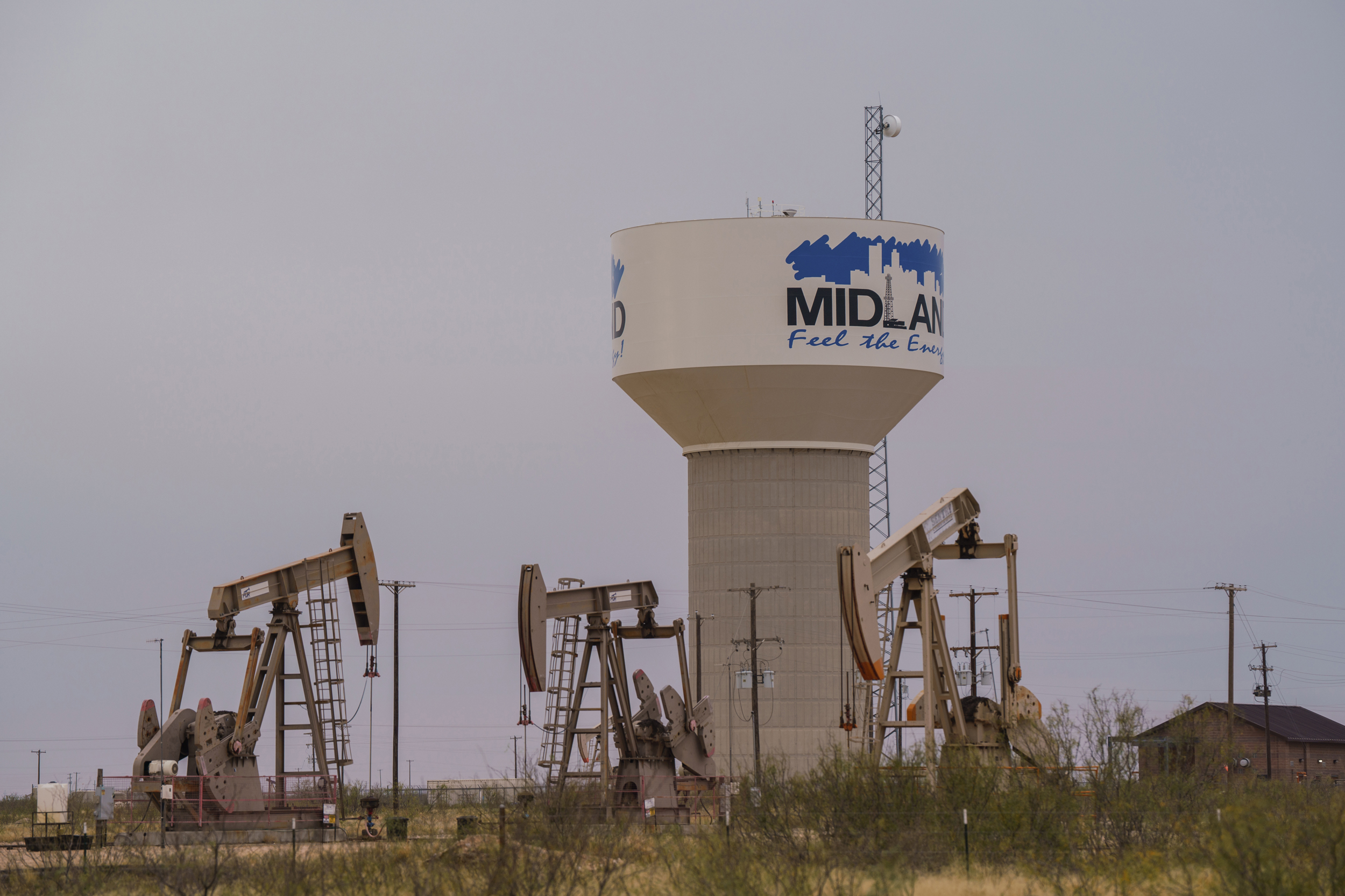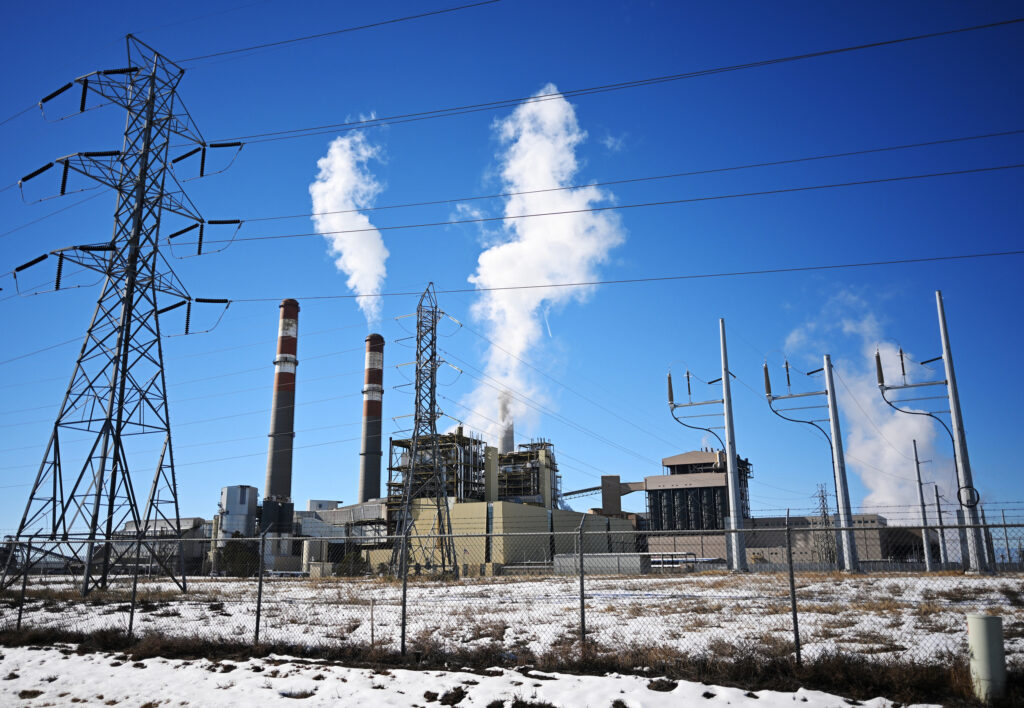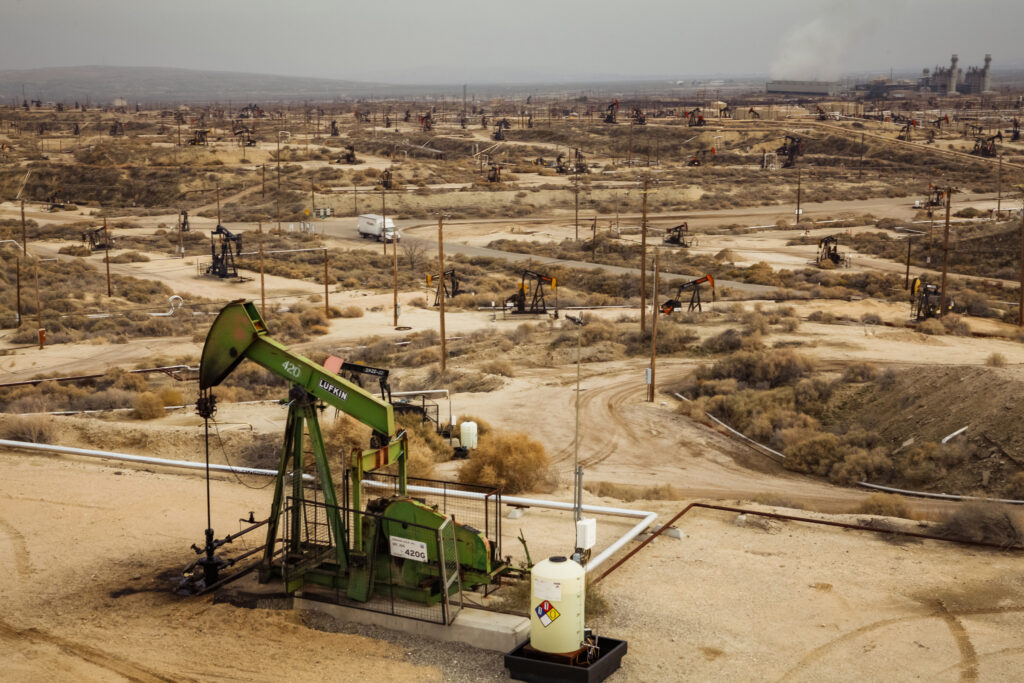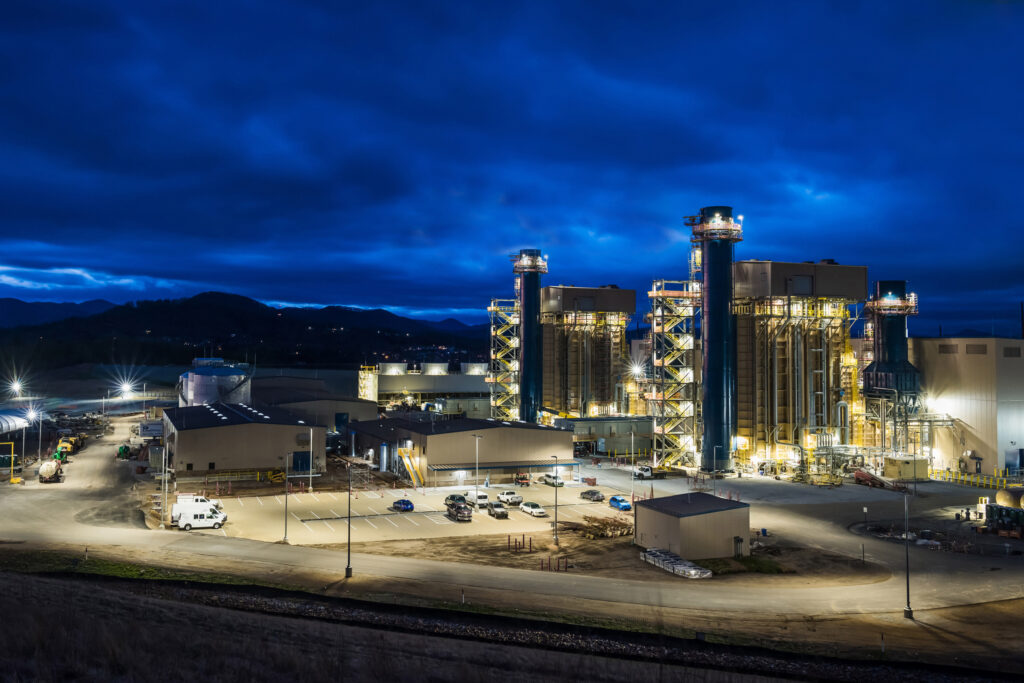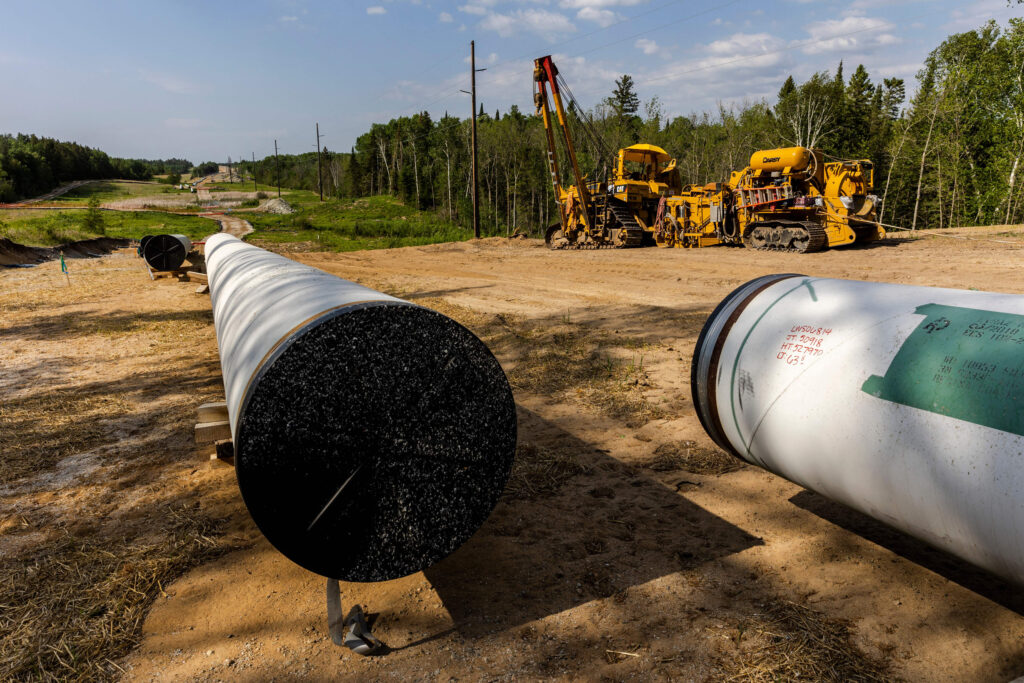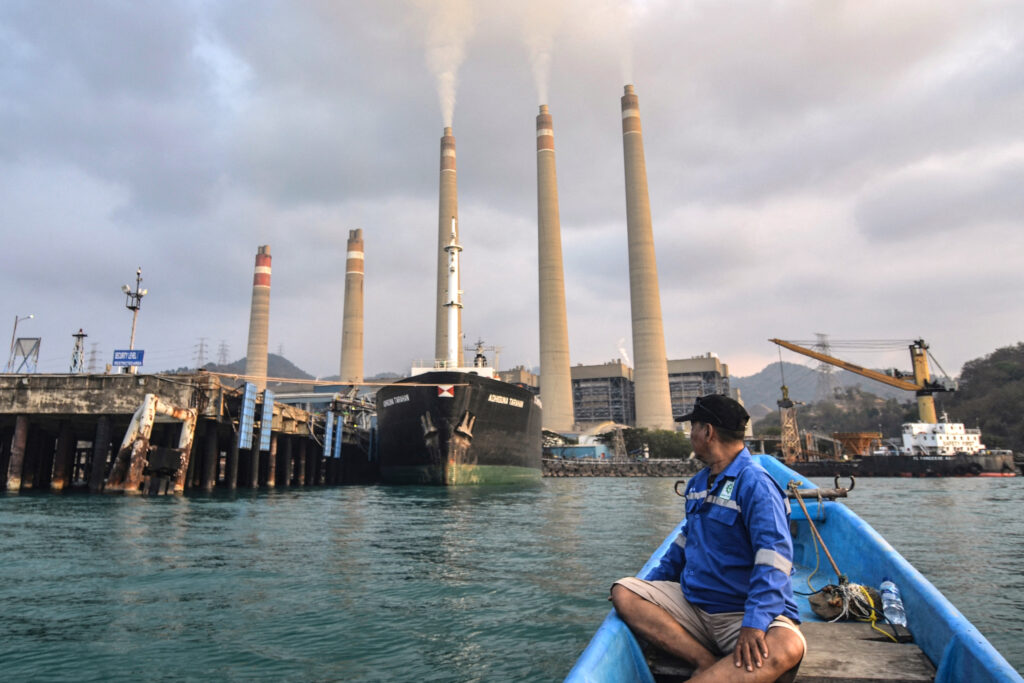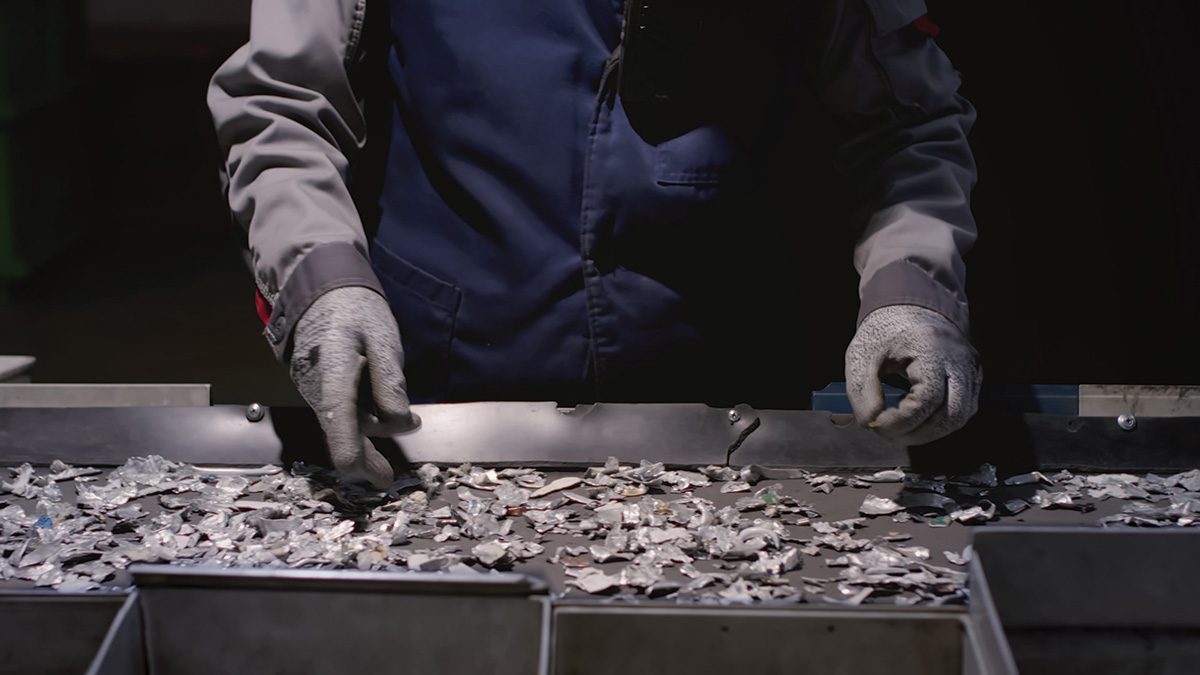A new report draws on decades of internal documents and court records to lay out how some of the world’s most powerful corporations misled the public about the dangers of climate change—and how their efforts to avoid responsibility for the harms caused by their products have evolved in recent years.
The documents and records cited in the report, released Wednesday by the watchdog group Union of Concerned Scientists, have been reported on previously. But the report’s authors say they are the first to aggregate and analyze those documents in a comprehensive way.
“This report puts together, in one place, a powerful body of evidence about what the fossil fuel corporations knew—and when—about the climate impacts of their products, and what they did in spite of what they knew,” said Kathy Mulvey, a report author and accountability campaign director for the Climate and Energy Program at UCS.
Mulvey said the report should add heft to dozens of lawsuits pending worldwide against fossil fuel companies over their contribution to climate change.
The report comes as the Trump administration and the U.S. Department of Justice are acting to shield those companies from legal accountability efforts within the United States.
In late April, President Donald Trump signed an executive order announcing his intent to protect “American Energy From State Overreach.” The order directs the Justice Department to review, identify and thwart state and local efforts to address climate change. In recent weeks, the agency filed lawsuits against Hawaii, Michigan, New York and Vermont, alleging those states’ lawsuits or legislation seeking to hold fossil fuel companies accountable for climate-related harms infringes on federal power.
Historically, conservatives championed states’ rights. But in recent years, the Republican Party has repeatedly sought to invoke a legal mechanism known as preemption to extinguish local communities’ and states’ rights to make decisions about environmental and health protections.
The report notes that the oil and gas industry was a “heavy donor” to Trump’s 2024 campaign. Publicly available documents indicate industry groups gave an estimated $96 million to the Trump campaign. That amount doesn’t include so-called “dark money” donations that are not publicly disclosed or contributions to the president’s meme coin, which Trump has personally profited from.
The White House did not respond to a request for comment. The Trump administration has previously said it is “committed to unleashing American energy,” though the White House has also moved to block low-carbon energy projects like wind farms.
According to the Union of Concerned Scientists’ report, titled “Decades of Deceit,” one quarter of people in the United States live in a state, territory or municipality that has sued a fossil fuel corporation for their role in contributing to climate change.
At the heart of those lawsuits are questions about who should be responsible for paying for the deaths and damages caused by climate-intensified storms, heat waves and arctic blasts. So far, the public has largely borne those costs, including through increasing insurance premiums.
The state-led lawsuits include claims that fossil fuel companies deceptively marketed their products while privately knowing about the dangers associated with them. The suits also allege that fossil fuel companies failed to warn the public about foreseeable harm caused by their products or that companies violated shareholder disclosure laws.
The defendant fossil fuel companies have all denied wrongdoing.
Those companies have defended the lawsuits on a variety of grounds, including by arguing that climate change should be a political rather than legal issue, and therefore should be left to Congress and the executive branch. Companies have also asserted that their statements questioning climate science are protected speech under the First Amendment.
U.S. states began bringing climate accountability lawsuits in the late 2010s, soon after investigative reports revealed fossil fuel companies had long-standing knowledge about the dangers associated with their products.
In 2015, Inside Climate News first reported that ExxonMobil had conducted internal research confirming the dangers of climate change, even as the company led a decades-long campaign to cast doubt on climate science.
Cases against BP, Chevron, ExxonMobil, Shell and others remain pending as companies fight states over whether the cases belong in federal or state court and other procedural issues. The U.S. Supreme Court has rejected companies’ attempts to dismiss the suits or move them to federal court. Separately, the court in March rejected an effort by Republican-led states to block Democratic-led state lawsuits against oil majors.
The Union of Concerned Scientists’ report argues that fossil fuel companies have largely delayed these cases or otherwise have evaded justice in U.S. courts by deploying extensive legal and financial resources.
Mulvey drew parallels between the fossil fuel industry and tobacco companies, which for decades used powerful legal teams to fend off lawsuits over tobacco-related illnesses. The turning point came, Mulvey said, when U.S. states began suing tobacco companies to recover healthcare costs associated with treating those illnesses.
That legal pressure coincided with investigative reporting and public revelations about how the industry had deliberately targeted youth and manipulated nicotine levels to increase the addictiveness of their products. Internal documents also revealed companies’ strategy of sowing doubt about the science of tobacco-related harms.
Unlike tobacco companies, the fossil fuel industry has argued its products have a socially useful function—supplying energy.
“Imagine what the world would look like today if those companies—in 1959 or 1979 or even 1988, when they clearly knew the consequences of the choices they were making—had been forthright about what they knew.”
— Steven Eric Feit, Center for International Environmental Law
Lawyers say that the usefulness of a product does not insulate a business from needing to warn the public about potential dangers associated with the product or from needing to address actual harm caused by it. Among the ongoing impacts of climate change, the report notes, conservative estimates suggest it will cause an additional quarter-million deaths each year by worsening diseases like malaria, heat stress and undernutrition.
“They’re selling something dangerous, and their product also poisons the people living near where it is produced—saying that’s OK because their product is useful doesn’t make the harm acceptable,” said Steven Eric Feit, senior attorney at the D.C.-based nonprofit Center for International Environmental Law.
Feit, who was not involved in the UCS report, said it’s important to publicly document each point in time when the industry knew about the harms of its products but chose to obscure them. At each of those moments, he said, governments could have used that information as a basis to take a different pathway forward that could have minimized the climate shocks the world is now experiencing.
“Imagine what the world would look like today if those companies—in 1959 or 1979 or even 1988, when they clearly knew the consequences of the choices they were making—had been forthright about what they knew,” Feit said.
This story is funded by readers like you.
Our nonprofit newsroom provides award-winning climate coverage free of charge and advertising. We rely on donations from readers like you to keep going. Please donate now to support our work.
Donate Now
Among the moments outlined in the UCS report:
1950s-1960s: Internal company documents indicate that fossil fuel companies learned of the potentially dangerous impacts of climate change.
1979-1983: The American Petroleum Institute, a fossil fuel industry group, and oil companies operated a task force monitoring and exchanging climate research, though companies did not publicly acknowledge their products’ impacts on climate change until much later. ExxonMobil, for instance, did not publicly acknowledge that burning fossil fuels contributes to climate change until 2006.
1984: ExxonMobil scientist Henry Shaw told company executives, “We can either adapt our civilization to a warmer planet or avoid the problem by sharply curtailing the use of fossil fuels.” Exxon then scaled back its climate research and invested in a climate science disinformation campaign to mislead the public and block government action.
1988: In a private report entitled “The Greenhouse Effect,” Shell recognized that the burning of fossil fuels is causing climate change and warned that there was a rapidly closing window to take action. That year, the company also forecasted extreme weather events and public backlash against the industry.
1998: In a strategic “Action Plan” memo, the American Petroleum Institute laid out strategies to sow uncertainty about climate science by manipulating media and political narratives.
2019: Former ExxonMobil scientists testify before a congressional committee, telling lawmakers that the company knew about climate change but, fearing harm to its business, amped up efforts to sow doubt about global warming.
2025: Court documents allege there was a coordinated scheme to hack into the email accounts of prominent climate activists. The documents, filed by the U.S. government in a U.K. court in January, say a D.C. lobbying firm acting on behalf of “one of the world’s largest oil and gas corporations, centred in Irving, Texas” paid a consultant $16 million between 2013 and 2018. That consultant “orchestrated computer hacking crimes against over 100 victim corporations, organisations and individuals,” and the “fruits of the hacking” were used to discredit climate advocates, the filing says.

ExxonMobil did not respond to a request for comment. When previously asked about the allegation by NPR, a company spokesperson said it has not been “involved in, nor are we aware of, any hacking activities. If there was any hacking involved, we condemn it in the strongest possible terms.” In recent years, company executives have downplayed their predecessors’ statements promoting climate disinformation.
The American Petroleum Institute did not respond to a request for comment.
A Shell spokesperson said in a written statement, “The issue of climate change and how to tackle it has long been part of public discussion and ongoing scientific research and debate for many decades. There is a vast public record of media articles, scientific journals and government reports for well over 50 years that make this clear.” Referencing the ongoing lawsuits, the company added, “The suggestion that the plaintiffs in US climate litigation cases were somehow unaware of climate change is simply not credible. The Shell Group did not have unique knowledge about climate change.”
Mulvey and Feit describe the history detailed in the report as an evolving pattern of denial, delay and obfuscation tactics that they say have continued today in more subtle forms of misinformation, often referred to as greenwashing.
“Greenwashing might sound harmless, but it’s actually dangerous,” Feit said. “Many of the so-called solutions to climate change being promoted by the industry are incomplete, lack key context or are simply not real.”
He pointed to industry claims that carbon capture can remove around 90 percent of greenhouse gas emissions from polluting projects. “No facility has actually achieved that,” he said.
Newer industry efforts outlined in the report include attempts to block state legislation that would make polluters pay for climate-related damage, a campaign to rebrand environmentally conscious investing as “woke capitalism” and efforts to revive a 2018 attempt to obtain a blanket waiver of legal liability from Congress.
“In the current political context, we have reason to believe that the fossil fuel industry and its allies will attempt yet again to pass some form of liability waiver and get off scot-free for decades of deception, pollution, and massive damage to people and the planet,” the report said.
“Congress must do everything in its power to ensure such an effort does not succeed.”
About This Story
Perhaps you noticed: This story, like all the news we publish, is free to read. That’s because Inside Climate News is a 501c3 nonprofit organization. We do not charge a subscription fee, lock our news behind a paywall, or clutter our website with ads. We make our news on climate and the environment freely available to you and anyone who wants it.
That’s not all. We also share our news for free with scores of other media organizations around the country. Many of them can’t afford to do environmental journalism of their own. We’ve built bureaus from coast to coast to report local stories, collaborate with local newsrooms and co-publish articles so that this vital work is shared as widely as possible.
Two of us launched ICN in 2007. Six years later we earned a Pulitzer Prize for National Reporting, and now we run the oldest and largest dedicated climate newsroom in the nation. We tell the story in all its complexity. We hold polluters accountable. We expose environmental injustice. We debunk misinformation. We scrutinize solutions and inspire action.
Donations from readers like you fund every aspect of what we do. If you don’t already, will you support our ongoing work, our reporting on the biggest crisis facing our planet, and help us reach even more readers in more places?
Please take a moment to make a tax-deductible donation. Every one of them makes a difference.
Thank you,




